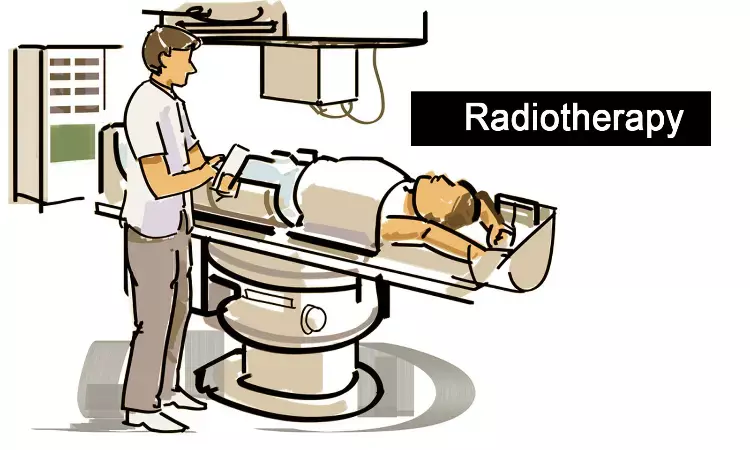- Home
- Medical news & Guidelines
- Anesthesiology
- Cardiology and CTVS
- Critical Care
- Dentistry
- Dermatology
- Diabetes and Endocrinology
- ENT
- Gastroenterology
- Medicine
- Nephrology
- Neurology
- Obstretics-Gynaecology
- Oncology
- Ophthalmology
- Orthopaedics
- Pediatrics-Neonatology
- Psychiatry
- Pulmonology
- Radiology
- Surgery
- Urology
- Laboratory Medicine
- Diet
- Nursing
- Paramedical
- Physiotherapy
- Health news
- Fact Check
- Bone Health Fact Check
- Brain Health Fact Check
- Cancer Related Fact Check
- Child Care Fact Check
- Dental and oral health fact check
- Diabetes and metabolic health fact check
- Diet and Nutrition Fact Check
- Eye and ENT Care Fact Check
- Fitness fact check
- Gut health fact check
- Heart health fact check
- Kidney health fact check
- Medical education fact check
- Men's health fact check
- Respiratory fact check
- Skin and hair care fact check
- Vaccine and Immunization fact check
- Women's health fact check
- AYUSH
- State News
- Andaman and Nicobar Islands
- Andhra Pradesh
- Arunachal Pradesh
- Assam
- Bihar
- Chandigarh
- Chattisgarh
- Dadra and Nagar Haveli
- Daman and Diu
- Delhi
- Goa
- Gujarat
- Haryana
- Himachal Pradesh
- Jammu & Kashmir
- Jharkhand
- Karnataka
- Kerala
- Ladakh
- Lakshadweep
- Madhya Pradesh
- Maharashtra
- Manipur
- Meghalaya
- Mizoram
- Nagaland
- Odisha
- Puducherry
- Punjab
- Rajasthan
- Sikkim
- Tamil Nadu
- Telangana
- Tripura
- Uttar Pradesh
- Uttrakhand
- West Bengal
- Medical Education
- Industry
Stereotactic Radiotherapy Reduces Anti-VEGF Use in nAMD Without Affecting Visual Acuity: Study

Researchers have found that stereotactic radiotherapy (SRT) for neovascular age-related macular degeneration (nAMD) reduces the need for anti-vascular endothelial growth factor (VEGF) injections without significantly impacting visual acuity. This randomized trial, reported by Timothy L. Jackson, MBChB, PhD, of King's College Hospital in London, demonstrates that SRT could potentially lower the global treatment burden and costs associated with nAMD. The study was published in The Lancet journal.
Neovascular age-related macular degeneration is a leading cause of vision loss among the elderly. The standard treatment involves intravitreal injections of anti-VEGF medications like ranibizumab (Lucentis). Despite their efficacy, these injections are costly and require frequent administration, which can be burdensome for patients. Previous studies have suggested that radiation therapy might reduce the need for these injections, but the long-term effects and safety of such an approach remained unclear until now.
The study enrolled 411 patients with nAMD, who were randomized in a 2:1 ratio to receive either 16-Gy SRT or sham SRT, in addition to their ongoing ranibizumab treatment. Patients were followed for two years, with data from 359 patients analyzed for efficacy and 409 for safety. The primary outcomes measured were the number of anti-VEGF injections required and changes in best-corrected visual acuity (BCVA). Secondary outcomes included the incidence of adverse events, particularly microvascular abnormalities.
• Patients assigned to SRT received an average of 10.7 doses of ranibizumab over two years compared to 13.3 doses for those in the sham SRT group.
• This reduction of 2.9 injections per patient (95% CI -4.2 to -1.6, P<0.0001) was statistically significant.
• There was no significant difference in BCVA between the two groups at the end of the trial, with BCVA decreasing by 1.7 letters, meeting the prespecified criteria for noninferiority.
• Adverse events were similar in both groups, but microvascular abnormalities were more common in the SRT group (35%) compared to the sham group (12%).
• Despite this, overall BCVA in eyes with microvascular abnormalities was better than in those without.
The trial results indicate that SRT can effectively reduce the frequency of anti-VEGF injections required for nAMD treatment without compromising visual outcomes. The reduction in injections led to significant cost savings, estimated at £565 (~$725) per patient over two years. This finding is particularly relevant given the high annual costs associated with anti-VEGF therapy, which are estimated at $10.7 billion in the U.S. alone.
These findings suggest that SRT could be a viable adjunctive therapy for nAMD, reducing the need for frequent anti-VEGF injections and associated costs without compromising patient safety or visual outcomes. However, further research is needed to address potential long-term risks, such as geographic atrophy, and to determine the efficacy of SRT in combination with longer-acting anti-VEGF agents.
In conclusion, the study by Jackson and colleagues provides strong evidence that SRT reduces the frequency of anti-VEGF injections needed for nAMD treatment without adversely affecting visual acuity. If further studies confirm these results, SRT could become a key component in the management of nAMD, offering a less burdensome and more cost-effective treatment option for patients worldwide.
Reference:
Jackson, T. L., Desai, R., Wafa, H. A., Wang, Y., Peacock, J., Peto, T., Chakravarthy, U., Dakin, H., Wordsworth, S., Lewis, C., Clinch, P., Ramazzotto, L., Neffendorf, J. E., Lee, C. N., O’Sullivan, J. M., Reeves, B. C., Abugreen, S., Bindra, M., Burton, B., … Vrizidou, E. (2024). Stereotactic radiotherapy for neovascular age-related macular degeneration (STAR): a pivotal, randomised, double-masked, sham-controlled device trial. Lancet. https://doi.org/10.1016/s0140-6736(24)00687-1
Dr Riya Dave has completed dentistry from Gujarat University in 2022. She is a dentist and accomplished medical and scientific writer known for her commitment to bridging the gap between clinical expertise and accessible healthcare information. She has been actively involved in writing blogs related to health and wellness.
Dr Kamal Kant Kohli-MBBS, DTCD- a chest specialist with more than 30 years of practice and a flair for writing clinical articles, Dr Kamal Kant Kohli joined Medical Dialogues as a Chief Editor of Medical News. Besides writing articles, as an editor, he proofreads and verifies all the medical content published on Medical Dialogues including those coming from journals, studies,medical conferences,guidelines etc. Email: drkohli@medicaldialogues.in. Contact no. 011-43720751


